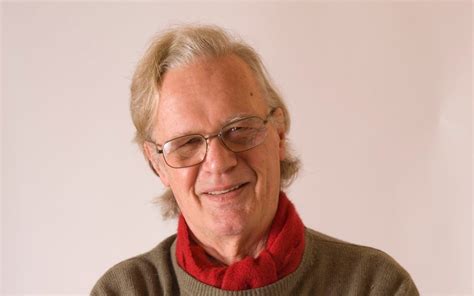A Quote by Friedrich Nietzsche
Science is about finding ever better approximations rather than pretending you have already found ultimate truth.
A casual stroll through the lunatic asylum shows that faith does not prove anything.
Related Quotes
I have said that science is impossible without faith. ... Inductive logic, the logic of Bacon, is rather something on which we can act than something which we can prove, and to act on it is a supreme assertion of faith ... Science is a way of life which can only fluorish when men are free to have faith.
The truth comes to rule, not through violence, but rather through its own power; [this is the central theme of John's Gospel:] When brought before Pilate, Jesus professes that He Himself is The Truth and the witness to the truth. He does not defend the truth with legions but rather makes it visible through His Passion and thereby also implements it.
When I first began examining the global-warming scare, I found nothing more puzzling than the way officially approved scientists kept on being shown to have finagled their data, as in that ludicrous "hockey stick" graph, pretending to prove that the world had suddenly become much hotter than at any time in 1,000 years. Any theory needing to rely so consistently on fudging the evidence, I concluded, must be looked on not as science at all, but as simply a rather alarming case study in the aberrations of group psychology.
No, I won't leave the world--I'll enter a lunatic asylum and see if the profundity of insanity reveals to me the riddles of life. Idiot, why didn't I do that long ago, why has it taken me so long to understand what it means when the Indians honour the insane, step aside for them? Yes, a lunatic asylum--don't you think I may end up there?
Why does philosophy use concepts and why does faith use symbols if both try to express the same ultimate? The answer, of course, is that the relation to the ultimate is not the same in each case. The philosophical relation is in principle a detached description of the basic structure in which the ultimate manifests itself. The relation of faith is in principle an involved expression of concern about the meaning of the ultimate for the faithful.
Had there been a Lunatic Asylum in the suburbs of Jerusalem, Jesus Christ would infallibly have been shut up in it at the outset of his public career. That interview with Satan on a pinnacle of the Temple would alone have damned him, and everything that happened after could have confirmed the diagnosis. The whole religious complexion of the modern world is due to the absence from Jerusalem of a Lunatic Asylum.
Science is like society and trade, in resting at bottom upon a basis of faith. There are some things here, too, that we can not prove, otherwise there would be nothing we can prove. Science is busy with the hither-end of things, not the thither-end. It is a mistake to contrast religion and science in this respect, and to think of religion as taking everything for granted, and science as doing only clean work, and having all the loose ends gathered up and tucked in. We never reach the roots of things in science more than in religion.








































